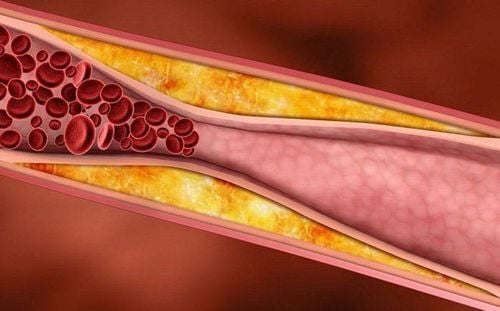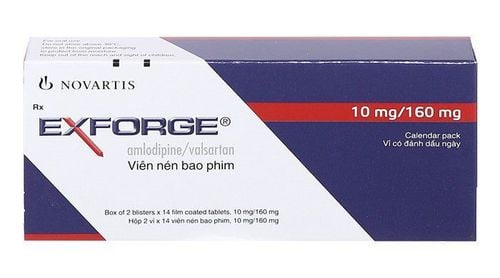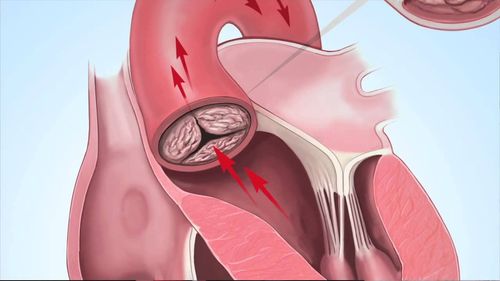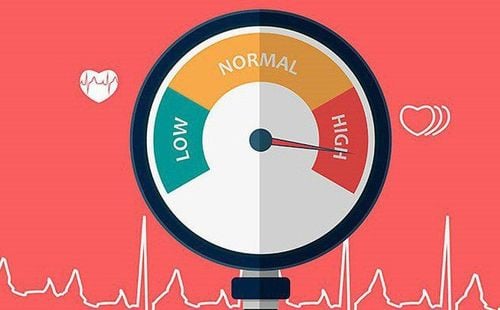This article is professionally consulted by Specialist Level II Dr. Nguyen Quoc Viet – Interventional Cardiologist, Department of Outpatient & Internal Medicine, Vinmec Da Nang International Hospital.
Blood pressure is an important indicator for assessing the body’s health status, especially the functioning of organs in the cardiovascular system. Blood pressure levels vary depending on the time and age. Both excessively high or low blood pressure can lead to dangerous complications such as strokes, cerebral hemorrhage, and myocardial infarction. So, what is considered normal blood pressure, and what is a good blood pressure for a 50-year-old? Let’s find out in the following article.
1. An Overview of Blood Pressure
1.1. What Is Blood Pressure?
Blood pressure is the force exerted by the blood against the artery walls, contributing to pushing blood through the circulatory system (from the heart to various organs). Blood pressure is not fixed; it can change over time and vary with age. Moreover, blood pressure helps assess overall health. A normal, stable blood pressure corresponds to a healthy individual without cardiovascular diseases.

Blood pressure includes two values: systolic and diastolic blood pressure.
- Systolic Blood Pressure: Also known as maximum blood pressure, measured when the heart contracts. At this moment, the pressure exerted by blood on the artery walls is at its highest. During measurement, systolic pressure is shown on top and has a higher value.
- Diastolic Blood Pressure: Also known as minimum blood pressure, measured between heartbeats when the heart is relaxed. Diastolic pressure is lower and displayed beneath the systolic value during measurement.
1.2. Factors Affecting Blood Pressure
Blood pressure changes over time and with age. The farther the blood travels from the aorta, the lower the blood pressure, and it reaches its lowest point in the veins. Understanding the factors influencing blood pressure helps you adopt a lifestyle and activity regimen to maintain normal blood pressure. Some factors include:
Internal Factors:
- Heart rate and cardiac contractility: The faster and stronger the heart beats, the higher the pressure on the artery walls. Thus, after vigorous exercise or when feeling excited, nervous, heart rate and blood pressure increase. Conversely, a slower heart rate and weaker contraction can lower blood pressure.
- Vascular resistance: High resistance in the arteries raises blood pressure. Loss of arterial elasticity and arterial damage make it harder for blood to circulate, affecting blood pressure. In older adults, arteries lose elasticity and narrow, commonly leading to atherosclerosis accompanied by hypertension. Systolic blood pressure is more influenced by vascular resistance than diastolic blood pressure.

- Blood viscosity: Thicker blood or higher blood viscosity increases blood pressure.
- Blood volume: Blood loss reduces blood volume and leads to lowered blood pressure. On the other hand, a salty, high-sodium diet increases osmotic pressure and blood volume, raising blood pressure.
External Factors:
- Time of day: Blood pressure is higher during the day than at night, ensuring adequate blood supply for daily activities.
- Mental state: Emotions stimulate the sympathetic nervous system, increasing heart activity, causing a faster and stronger heartbeat, thus raising blood pressure. Stress, anxiety, tension, and excitement all lead to higher blood pressure.
- Activity level: Vigorous activity makes the heart beat faster and more forcefully, increasing blood pressure.
- Temperature: In cold conditions, peripheral blood vessels constrict, directing blood toward major arteries, raising blood pressure. Therefore, blood pressure is often slightly higher in winter than in summer.
- Diet: A salty, high-sodium diet increases water retention in the body, thus increasing blood volume and raising blood pressure.
2. What Is a Good Blood Pressure for a 50-Year-Old?
Healthy individuals typically maintain stable blood pressure. Regular and periodic blood pressure checks help you assess your cardiovascular health. So, what is normal blood pressure, and what is the optimal range for a 50-year-old?
According to the American Heart Association (AHA), optimal blood pressure for adults is when both systolic and diastolic pressures are less than 120/80 mmHg (millimeters of mercury).
Additionally, according to the National High Blood Pressure Education Program:
- Optimal Blood Pressure: Less than 120/80 mmHg (Systolic <120 mmHg and Diastolic <80 mmHg)
- Normal Blood Pressure: Systolic 120–129 mmHg and Diastolic 80–84 mmHg
- High Normal Blood Pressure: Systolic 130–139 mmHg and Diastolic 85–89 mmHg
A blood pressure higher than “high normal” is considered hypertension. Individuals with “high normal” blood pressure are at risk of developing hypertension, so this level is known as prehypertension, requiring regular monitoring and a healthy lifestyle.

As we age, the elasticity of the arteries changes. With age, plaque accumulates, arteries stiffen, and the heart must contract harder to circulate blood, which can lead to higher blood pressure. Therefore, besides the optimal level of 120/80 mmHg, each age group has its own safe range. For middle-aged individuals, including 50-year-olds, a normal blood pressure range is about 116/81–142/89 mmHg (Systolic 116–142 mmHg and Diastolic 81–89 mmHg), with the most optimal level at 129/85 mmHg.
People in their 50s (or middle-aged individuals in general) experience many biological changes, notably hormonal changes, making them more susceptible to non-communicable diseases. Without regular blood pressure management, both hypertension and hypotension can occur.
- Hypertension: Determined when blood pressure exceeds 140/90 mmHg. Because the boundary between normal and high blood pressure is small and hypertension often lacks symptoms, more than 50% of patients remain undiagnosed. Yet hypertension is a leading cause of cardiovascular problems, such as stroke, heart failure, kidney failure, vision loss, and cognitive decline.
- Hypotension: Determined when blood pressure is less than 90/60 mmHg. Hypotension includes physiological (asymptomatic) and pathological forms. Pathological hypotension presents with fatigue, dizziness, headaches, and lightheadedness, requiring treatment.
3. Methods to Maintain Normal Blood Pressure
Besides asking what’s a good blood pressure for a 50-year-old, many wonder how to keep it within a normal range. Maintaining stable blood pressure helps reduce the risk of dangerous complications like stroke, heart failure, and cerebral hemorrhage.
Some ways to maintain normal blood pressure include:
3.1. Adopt a Scientific and Balanced Diet
Diet greatly affects blood pressure stability. A healthy, balanced diet helps maintain a healthy weight and reduces the risk of obesity and elevated blood lipids. Follow these principles:
- Ensure a balance of protein, carbohydrates, fiber, fats, vitamins, and minerals.
- Limit salt intake and avoid overly salty foods.
- Minimize alcohol, coffee, sugary drinks.
- Do not smoke.
- Get enough sleep to keep blood vessels and the heart healthy, reducing stress and stroke risk.
3.2. Exercise Regularly
In addition to a healthy diet, establishing healthy lifestyle habits is crucial for normal blood pressure. Exercise for at least 30 minutes daily and keep a positive, relaxed mindset.
3.3. Regular Health Check-ups
A check-up every six months is essential. Regular medical exams not only detect potential health risks early but also allow for prompt treatment to improve outcomes. Frequent blood pressure checks help you manage levels and find suitable exercises and routines to maintain the optimal blood pressure.

One of the safest, most accurate ways to know your blood pressure status is to have it checked at a reputable hospital specializing in hypertension.
To arrange an appointment, please call HOTLINE or make your reservation directly HERE. You may also download the MyVinmec app to schedule appointments faster and manage your reservations more conveniently.














